Future Speech-Language Pathologists Demonstrate Research at CSD Showcase
The three graduate students presenting their theses at the Communication, Sciences and Disorders Showcase on Wednesday, April 24, exhibit the range within the speech pathology field.
The trio’s theses address topics on experiences of neurodivergent Asian Americans, accent training services for multilingual individuals in the U.S., and evaluating hyoid movement in swallow studies.
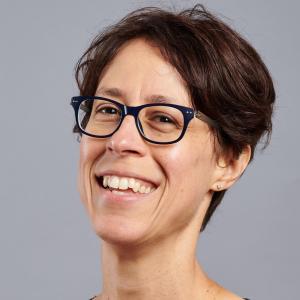
CSD Graduate Program Director and Associate Professor Robin Danzak is the thesis coordinator for CSD, and spoke about her enjoyment of working with students on developing their theses.
“I get so energized talking about research with students, and love all aspects of the research process: brainstorming ideas, designing impactful qualitative studies, working with communities, analyzing data, and sharing people’s stories. For the students and participants, it can be an extremely rich and rewarding experience,” said Danzak.
Emerson Today asked the three students about their theses, career goals, and more:
Emily Chen, MA ’24
What was the inspiration that led to your thesis: Lived Experiences of Neurodivergent Asian American Emerging Adults: A Photovoice Exploration?
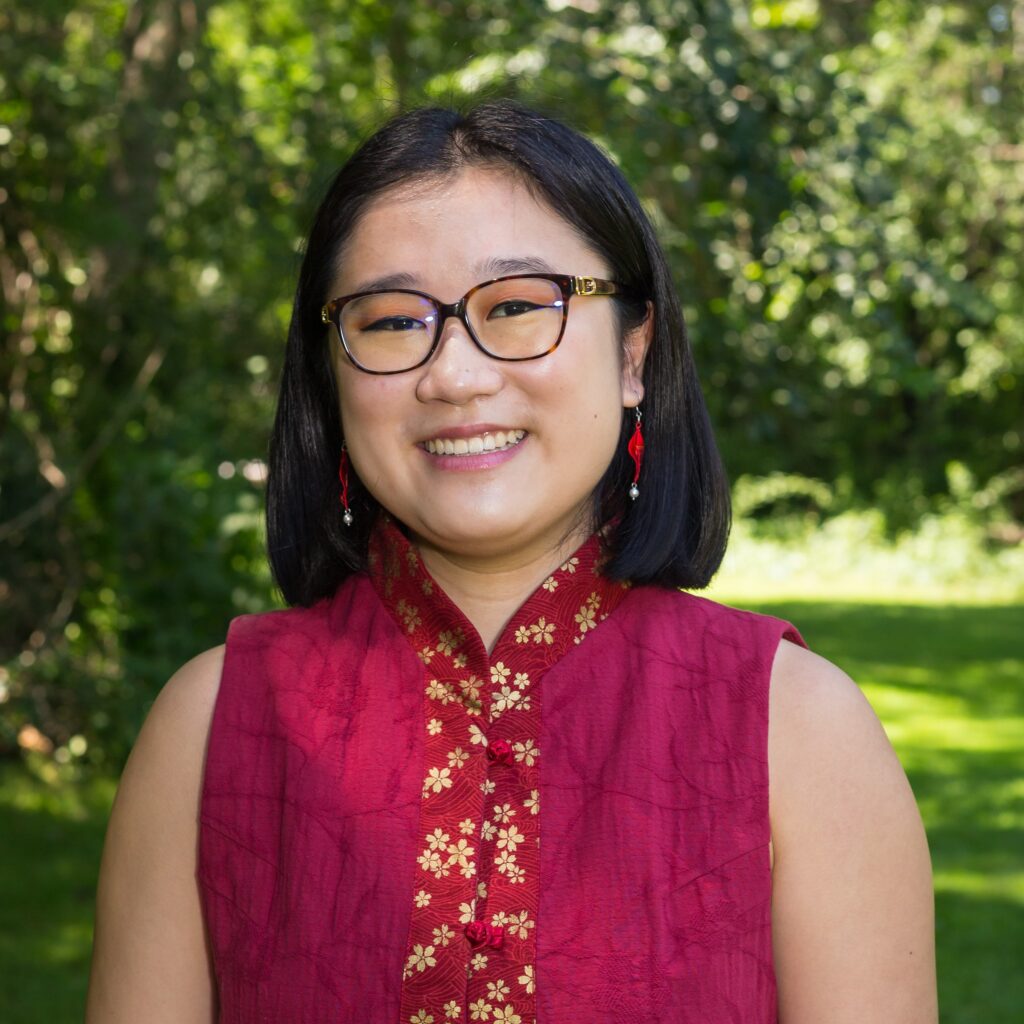
Chen: My own experience as a neurodivergent Asian American (ND AA) led to my thesis topic. I was diagnosed with ADHD at the age of 23 after years of struggling, and there was and still is very little information and research about, and community for, ND AA, which made my journey difficult and lonely. I’ve come a long way since, and I became curious about other ND AA’s experiences: Were they similar to mine? Completely different? How do ND and AA intersect and interact with one another? My thesis explores what life is like for neurodivergent Asian Americans, so that other ND AA can understand themselves and receive the support they need more quickly and easily than I did.
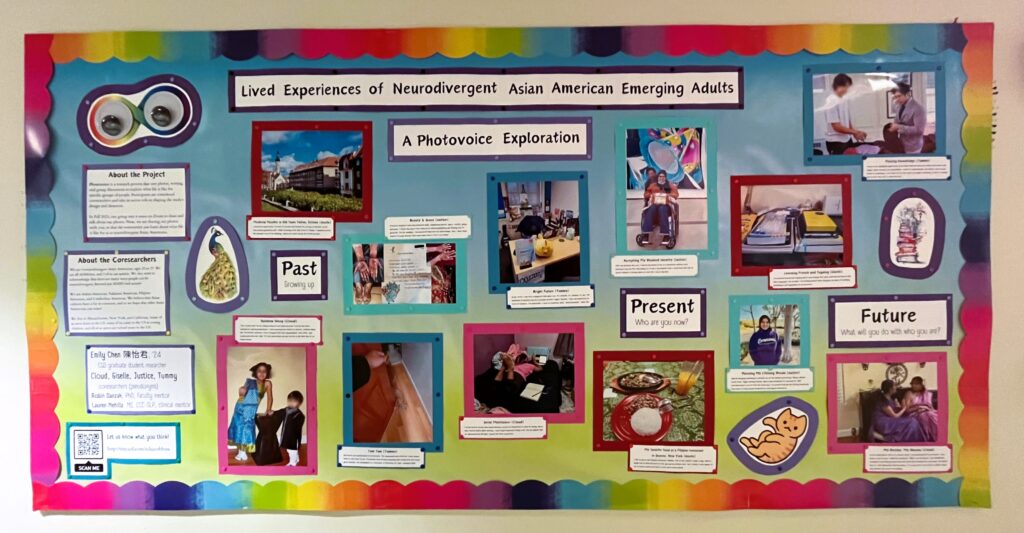
How would your thesis work and research be applied in real life applications?
Chen: In speech therapy and other clinical settings, this research can help clinicians better understand and support ND AA clients of all ages (kids will one day grow into adults!) and, thus, provide more neurodiversity-affirming and culturally responsive care. My thesis work, however, is not specific to clinical work by any means. This research also applies to ND AA peers, colleagues, family members, community members, and can help ND AA individuals feel seen and less alone, as well as help others support us and our unique needs.
What kind of professional work would you like to do after graduating from Emerson?
Chen: I will be a speech-language pathologist, and I would like to support neurodivergent clients and their families (especially Asian American ones). I hope to empower ND clients to accept and live as their full, authentic selves and help families and communities support ND individuals in affirming ways.
Is there anything else you’d like to share about yourself, your thesis, your Emerson experience, etc?
Chen: You can check out more of my work at my website emilychenstudio.com. DisOrient is my educational YouTube series for the AAPI community about mental health and neurodiversity. I also have other articles, interviews, and songs where I share my own experiences as a neurodivergent Asian American!
I am so grateful for Emerson CSD’s warm and accepting community that has allowed me to be my full self, feel so supported in my clinical work and research, and thrive.
Lior Grader, MA ’24
What was the inspiration that led to your thesis: Motivation to Participate in Accent Training Services among Bilingual and Multilingual Individuals in the US?
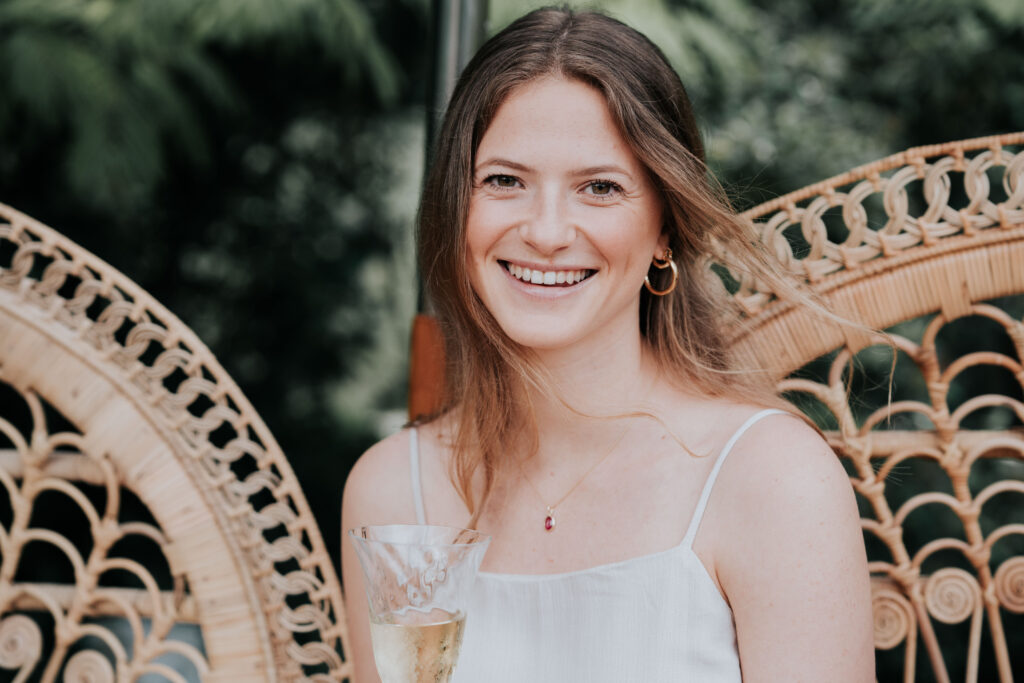
Grader: As a bilingual individual (my first language is Hebrew, and my second language is English), I was interested in learning more about accent training services due to my personal experience as an individual with an accent.
I wanted to learn more about what motivates people to participate in accent training services. Accent training services are elective services that are performed (also) by speech-language pathologists (SLPs) and aim to improve verbal and non-verbal communication among people who speak English with an accent.
After reviewing the literature about accent training, I learned about a debate in the SLP field regarding whether SLPs should offer those services. Some claim those services perpetuate bias against culturally diverse individuals, whereas others argue that they serve as a beneficial tool for career advancement and social integration. After learning about the debate, I was wondering what the clients think. Are those services meaningful and important?
How would your thesis work and research be applied in real life applications?
Grader: The research aims to bring the perspective of the clients, individuals with an accent, to the debate. So far, the debate has been among SLPs, but when we discuss eliminating services, we should also consider the client’s point of view.
What kind of professional work would you like to do after graduating from Emerson?
Grader: I plan to work as a speech-language pathologist
Is there anything else you’d like to share about yourself, your thesis, your Emerson experience, etc?
Grader: I want to thank my participants who agreed to take part in this research, my committee members, [CSD Senior Scholar-In-Residence] Maryam Salehomoum, Robin Danzak, and [CSD Affiliated Faculty] Wendy Kohn, for all the help and support during this amazing learning process, and [CSD Research Assistant] Briana Primavera ’26 for assisting with the data analysis process.
Elona Meziu Ribari, MA ’24
What was the inspiration that led to your thesis: Reliability in Speech-Language Pathology: Evaluating SLP’ Interpretations of Hyoid Movement in Videofluoroscopic Swallow Studies?
Ribari: My thesis was directly inspired by my work at EATS Lab, which I began under the guidance of [CSD Assistant Professor] Lindsay Griffin since September 2022. Working closely with Lindsay has been a life-changing journey for me. This experience exposed me to the complexities and challenges of assessing hyoid movement, which plays a critical role for swallowing safety, sparking my interest in working toward improving how these evaluations are conducted in clinical settings.
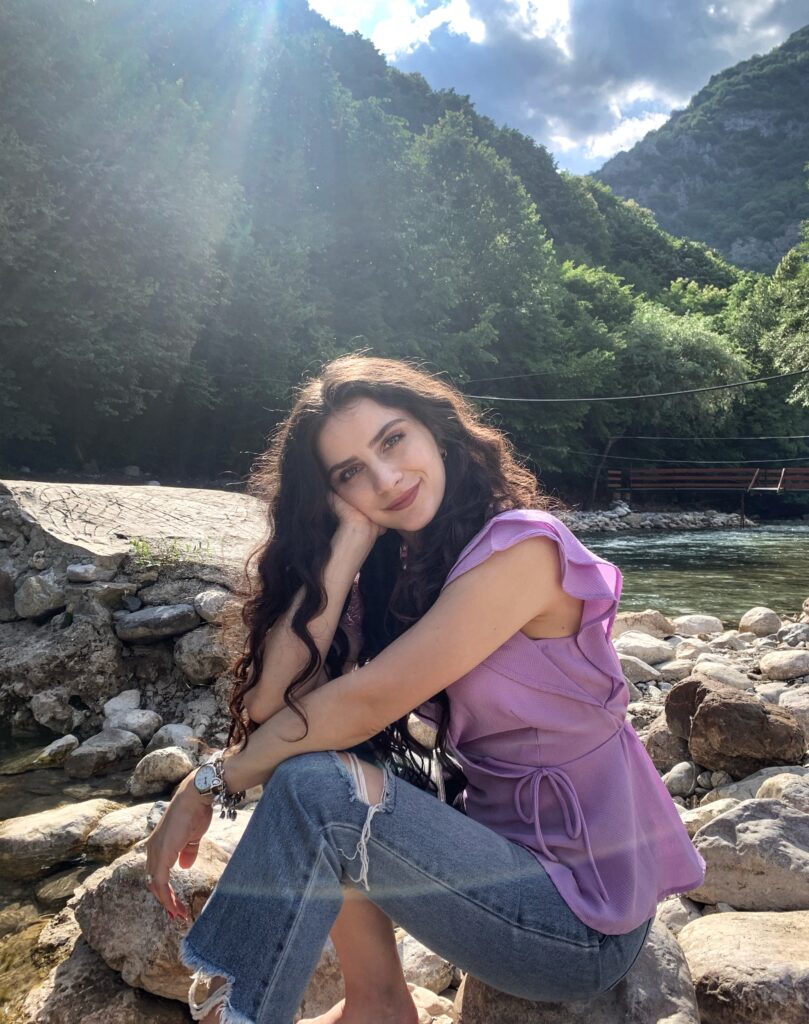
How would your thesis work and research be applied in real life applications?
Ribari: My research is aimed at enhancing the precision of SLPs’ interpretations of hyoid movement during Videofluoroscopic Swallow Studies (VFSS). By improving the reliability of these assessments, my work could lead to more accurate diagnostic practices and treatment plans for patients with dysphagia. This could significantly improve patient care and outcomes by preventing severe complications such as aspiration, pneumonia, and other related conditions.
What kind of professional work would you like to do after graduating from Emerson?
Ribari: After graduation, I envision myself working as a medical speech-language pathologist (SLP) in an acute care setting. My current internship at Boston Medical Center has reinforced my passion for this role, where I find great fulfillment in assisting patients with their rehabilitation, especially those struggling with swallowing difficulties and other communicative disorders.
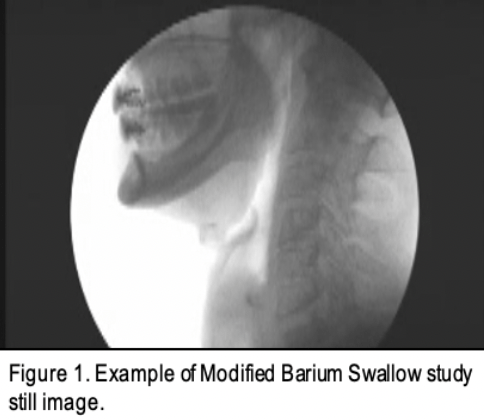
Is there anything else you’d like to share about yourself, your thesis, your Emerson experience, etc?
Ribari: Coming from Kosovo, a small country where speech-language pathology is still relatively new, I’ve found my experience at Emerson College to be profoundly transformative. The practices and skills I have gained here go beyond anything available back home, and I feel deeply honored to represent my country in such a prestigious institution. At Emerson, I’ve learned that the support of professors, supervisors, and staff is unconditional. They encourage us to aim higher and dream bigger, always ready to guide and assist us along our academic and professional journeys. Being part of this community has not only enhanced my skills but also reinforced my commitment to advancing this field in Kosovo and beyond.
The CSD Showcase will be held April 24, 4-6 pm, in The Judee.
Categories